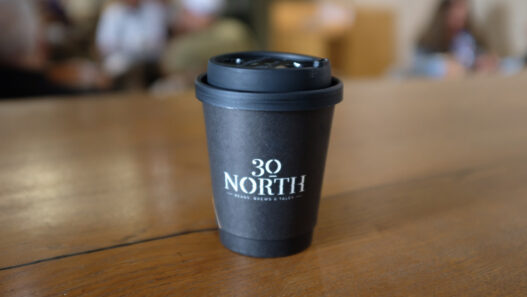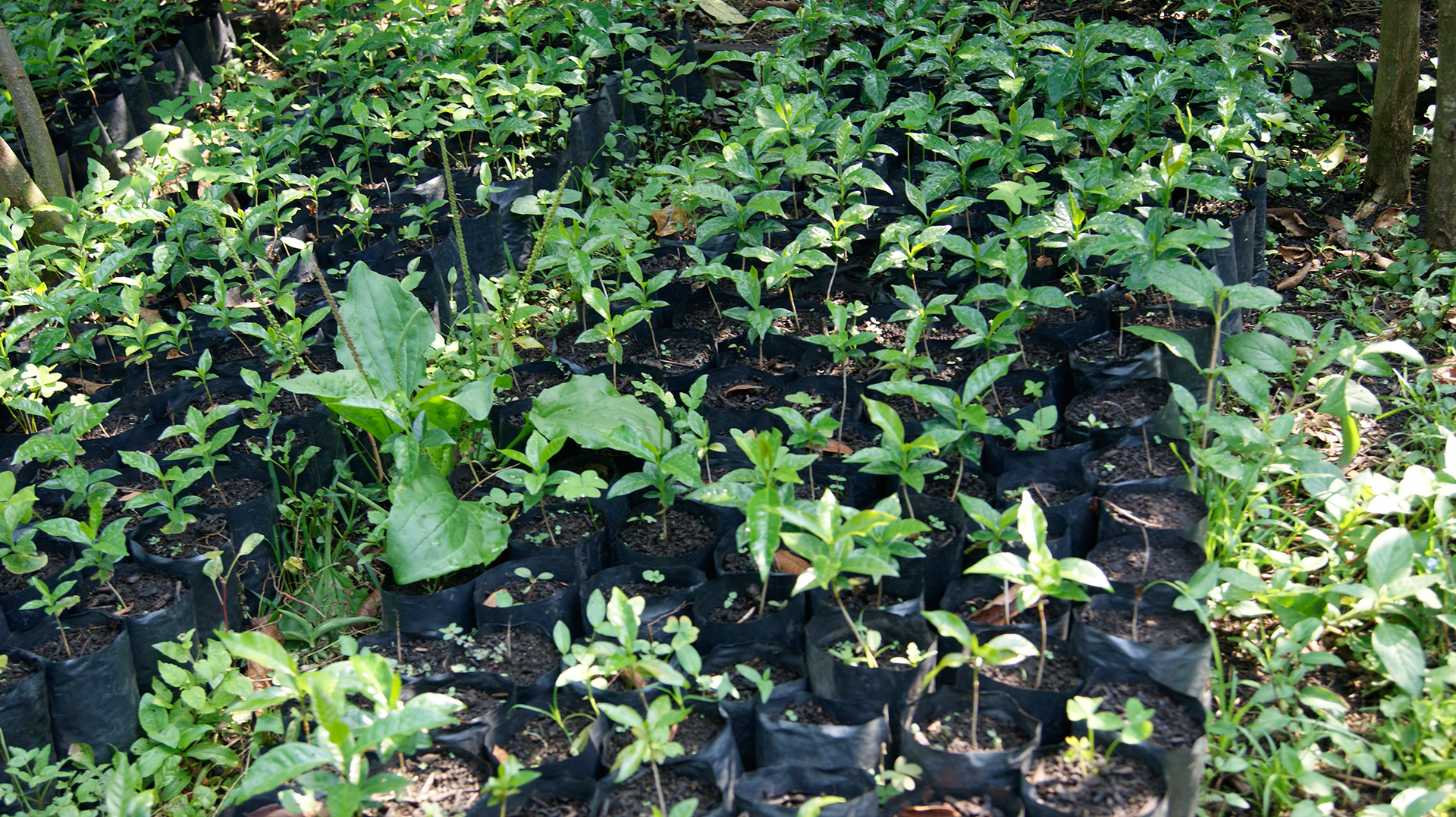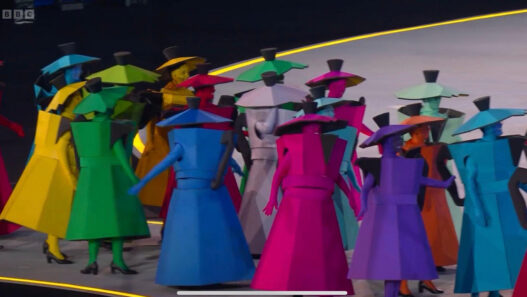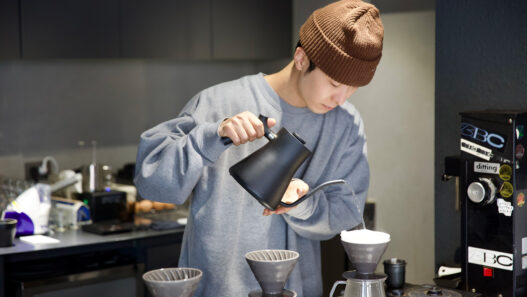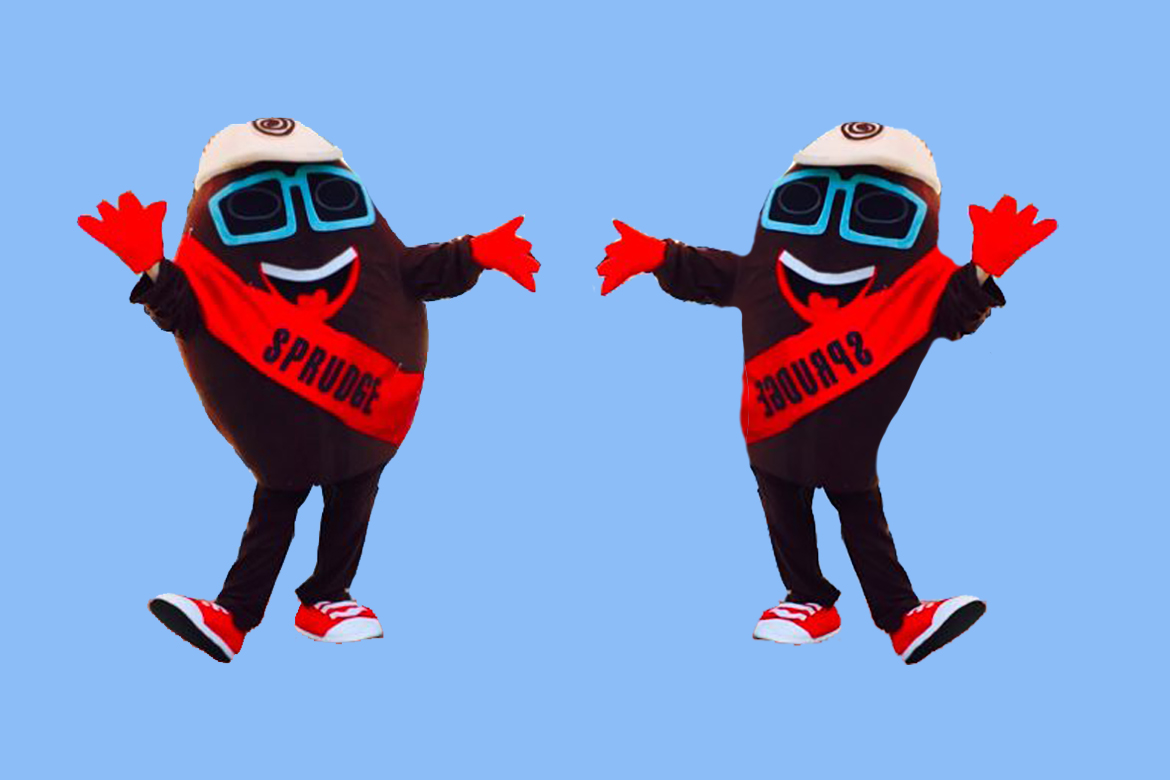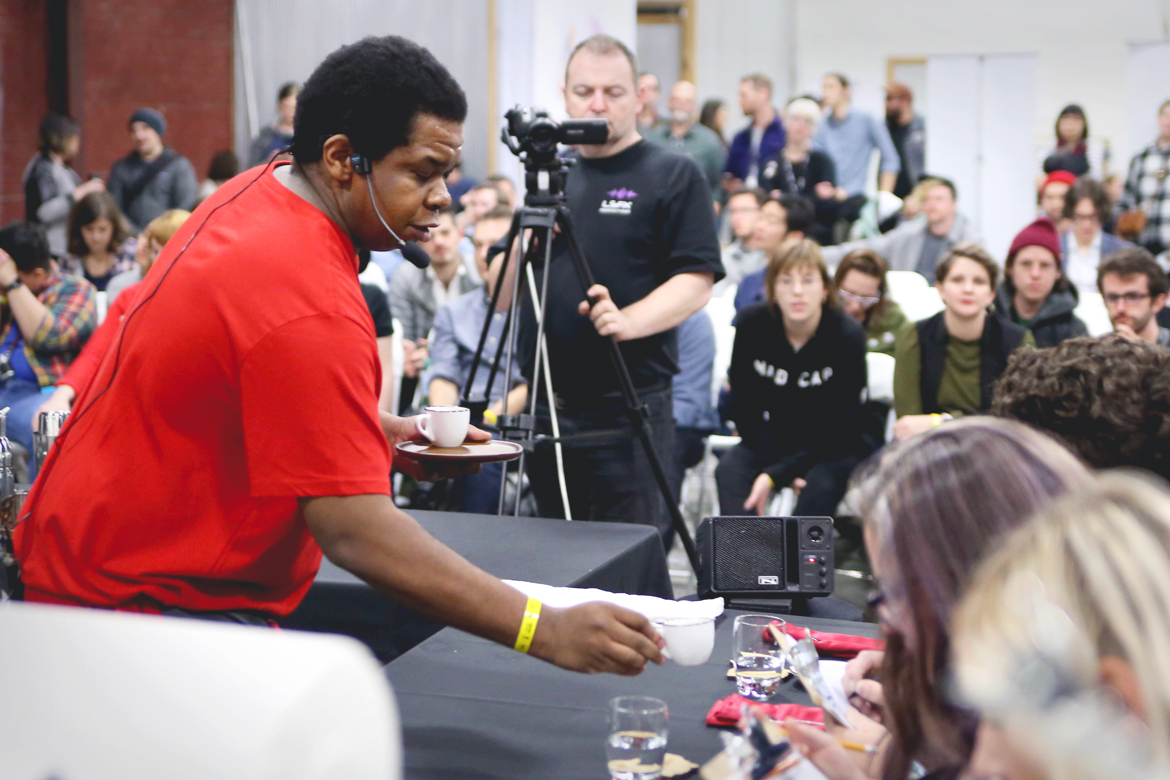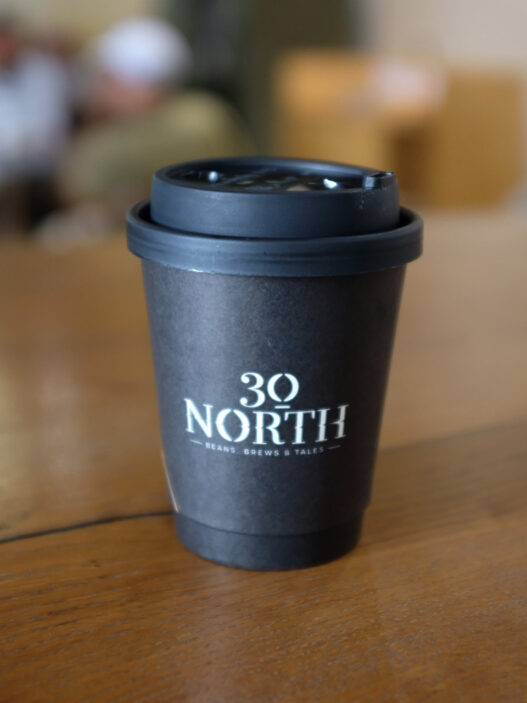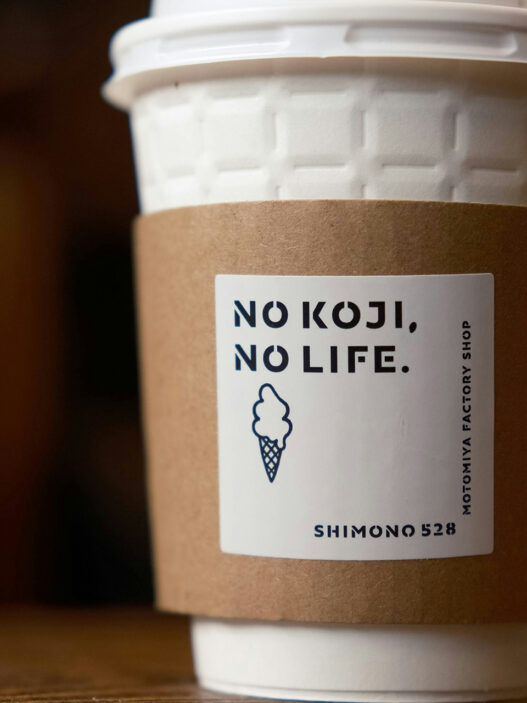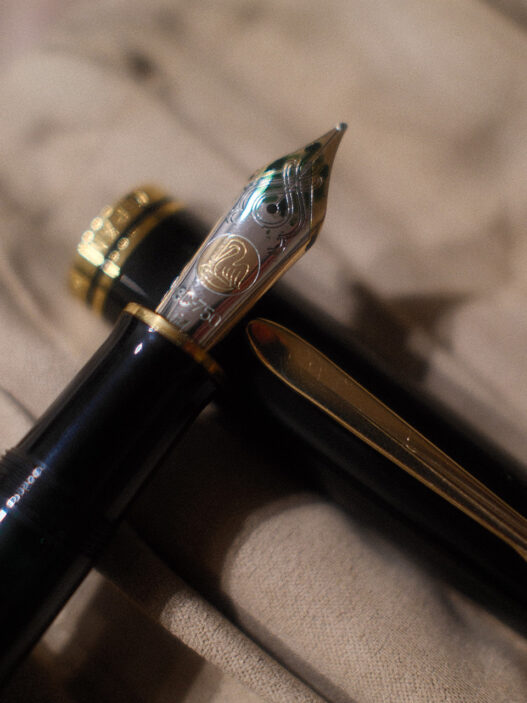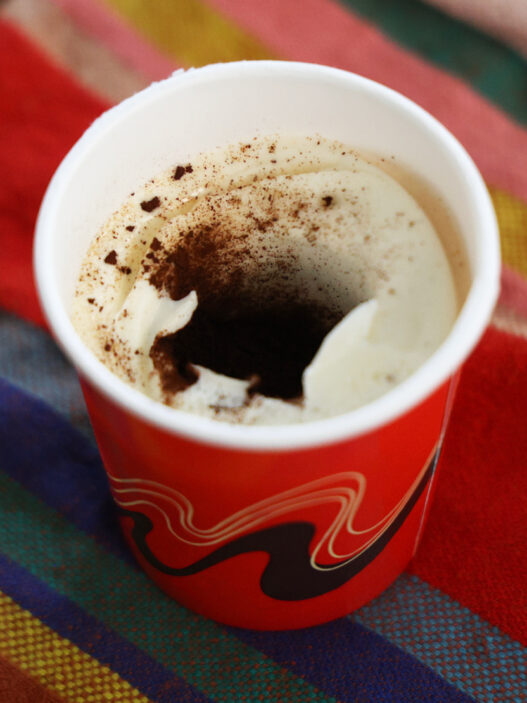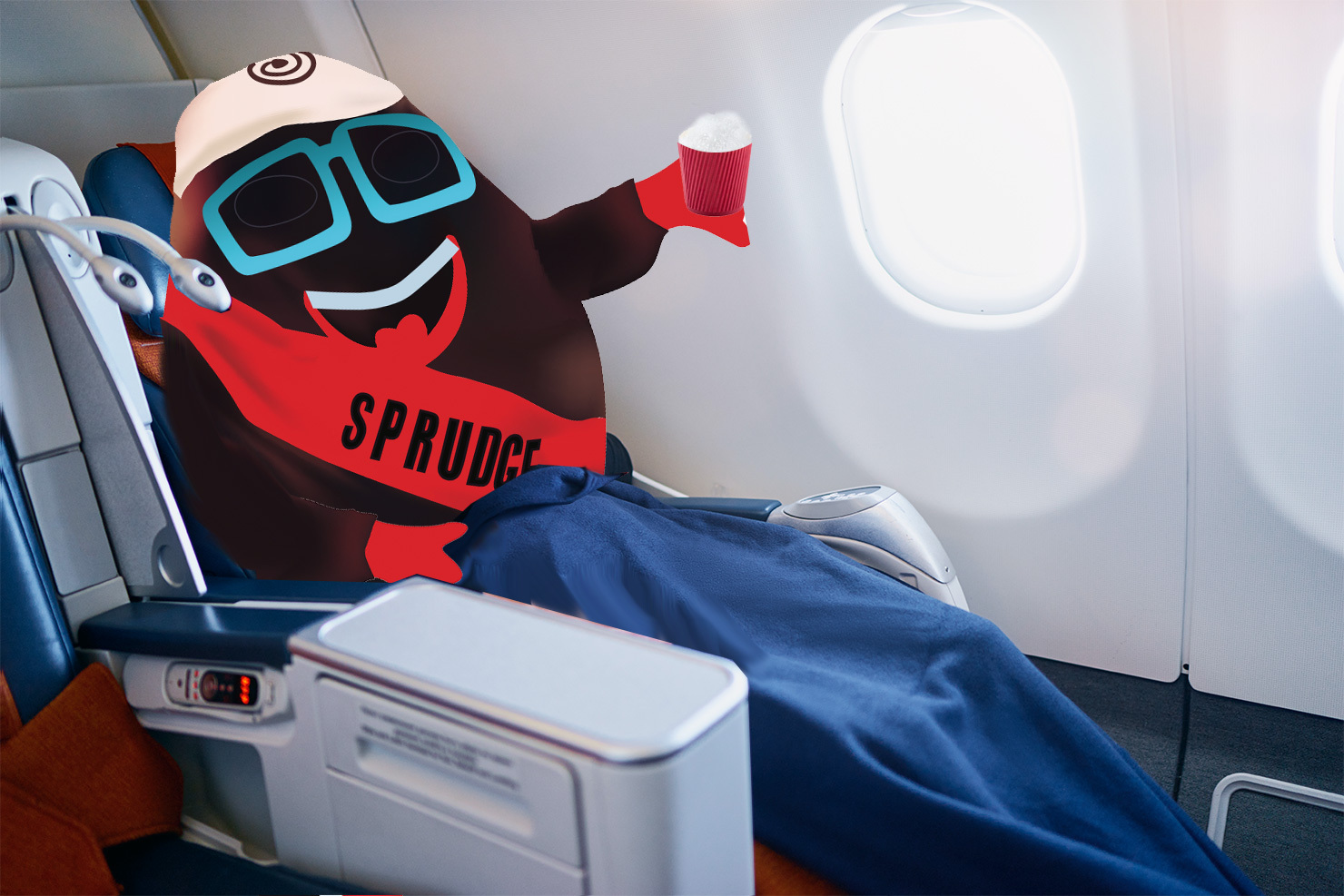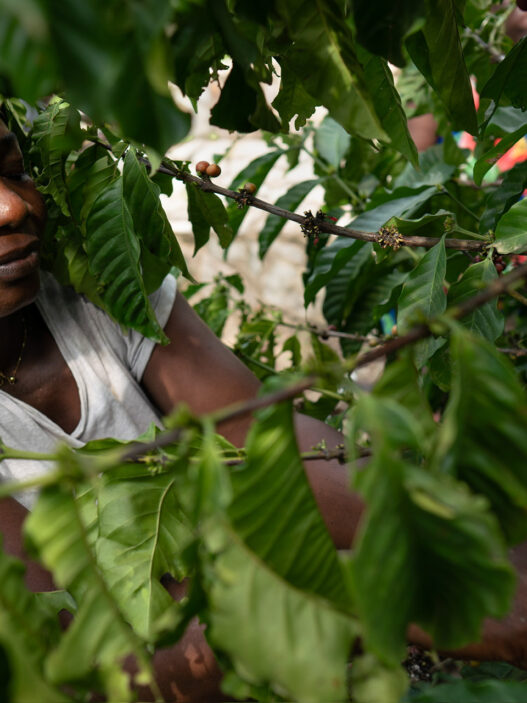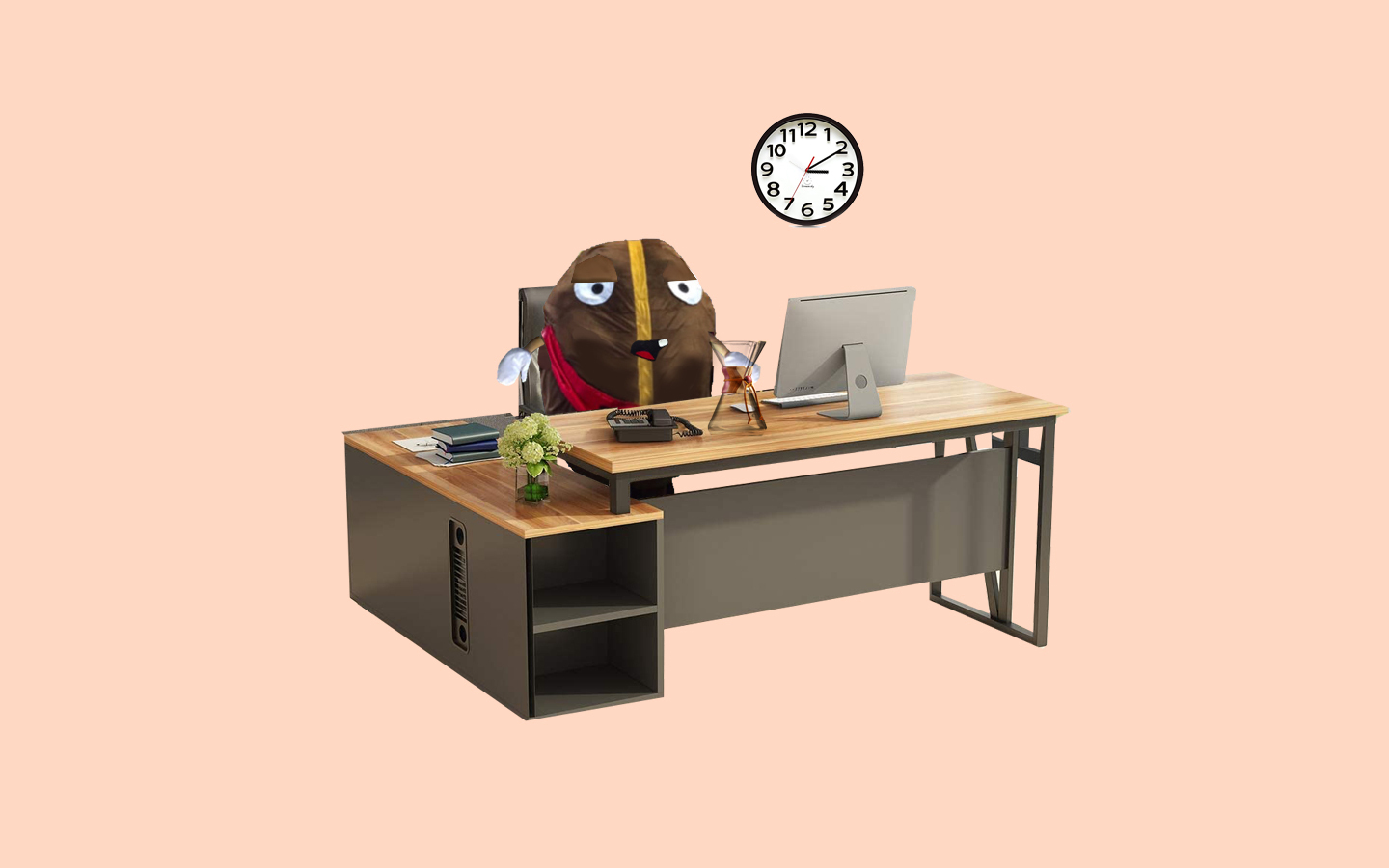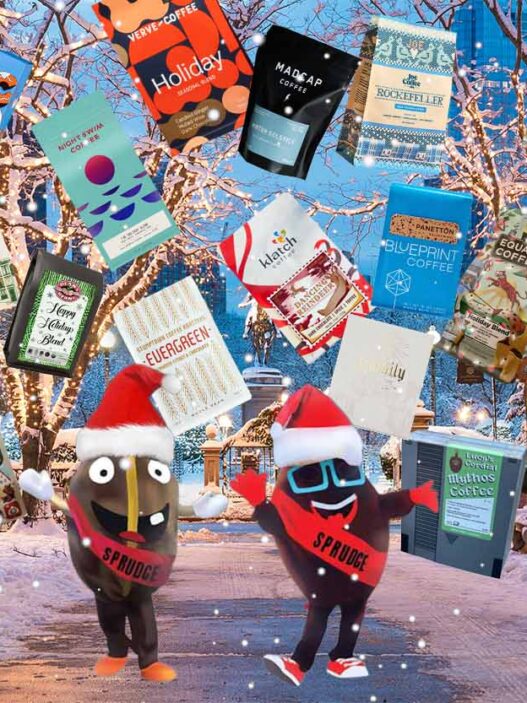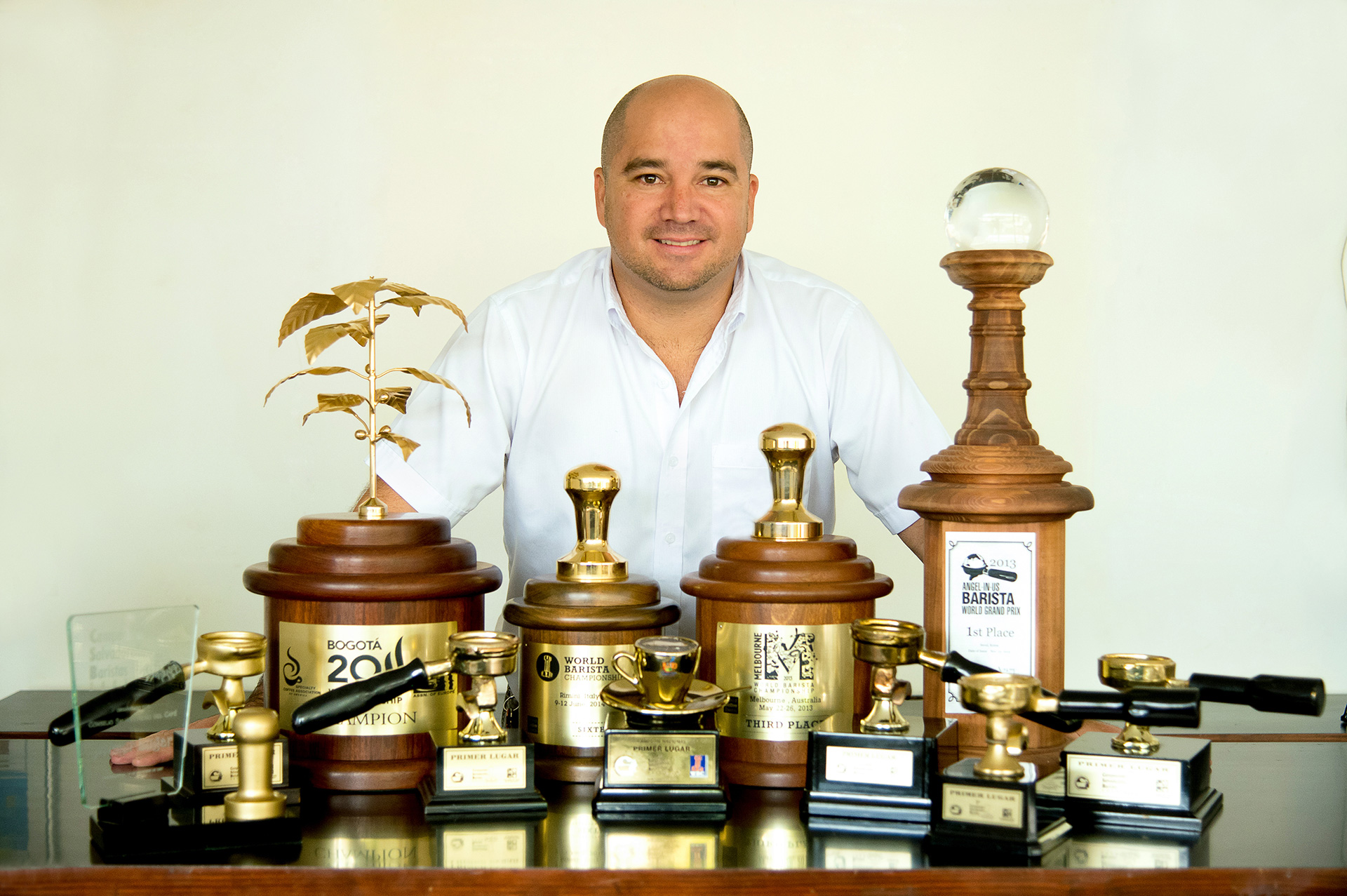
Contrary to how it may appear, barista competitions are a team sport. While the competitor is the only person to take the stage for that fateful 15 minutes, they do so representing not just themselves but often a group of people that helped shape their run; baristas are, in short, the tip of the spear.
Even in the niche world of coffee competition, one that creates very big fish in a small, somewhat obscure pond, coaches remain relatively unknown. Save for a handful of World Barista Championship winners like Hidenori Izaki, Sasa Sestic, and Pete Licata, who made names for themselves on the grandest of coffee stages and used that momentum to kickstart a successful post-WBC career, coffee competition coaches are not household names.
Coffee competition coaching is a fairly esoteric gig, and most non-competitors have no idea what coaches do. Sure, we know they “help make the routine” and maybe they help decipher the day-of-competition flavor calls, but beyond that, it’s all just a black box, especially at the World stage of competition, where the stakes are higher and the demand for a new, noteworthy routine is paramount. A competitor goes in, bursting with talent and potential, and comes out the other side a more complete package, hopefully a champion. That’s pretty much the beginning and end of the rest of the world’s knowledge of coaching.
If there is anyone who does know, though, it’s Federico Bolanos. His may not be a household name (even among coffee obsessives), but Bolanos is one of the most prolific coffee coaches in the history of the World Barista Championship. His resume includes five Semi-Finalists, none more notable than Costa Rica’s Maria Elena Rivera in 2019, who placed 13th without “exotic auction coffees, an experimental processing method, rocket science, or a revolutionary technology,” as she stated in her routine, itself an impressive feat. Bolanos has also coached two Champions: the 2011 Champion from El Salvador Alejandro Mendez—the first winner (of two total) from a producing country—and Jooyeon Joon, the 2019 Champion from South Korea, whose routine was one of the most memorable in competition history.
Who better to ask about the world of barista coaching than the person a little over a month removed from a wildly successful season behind the scenes? Sprudge has previously interviewed Bolanos about his pioneering work in Salvadoran cafe culture as the founder of Viva Espresso, but when we speak with him this time, it’s all about competition, the life of a coach, what he looks for in a trainee, and everything in between.
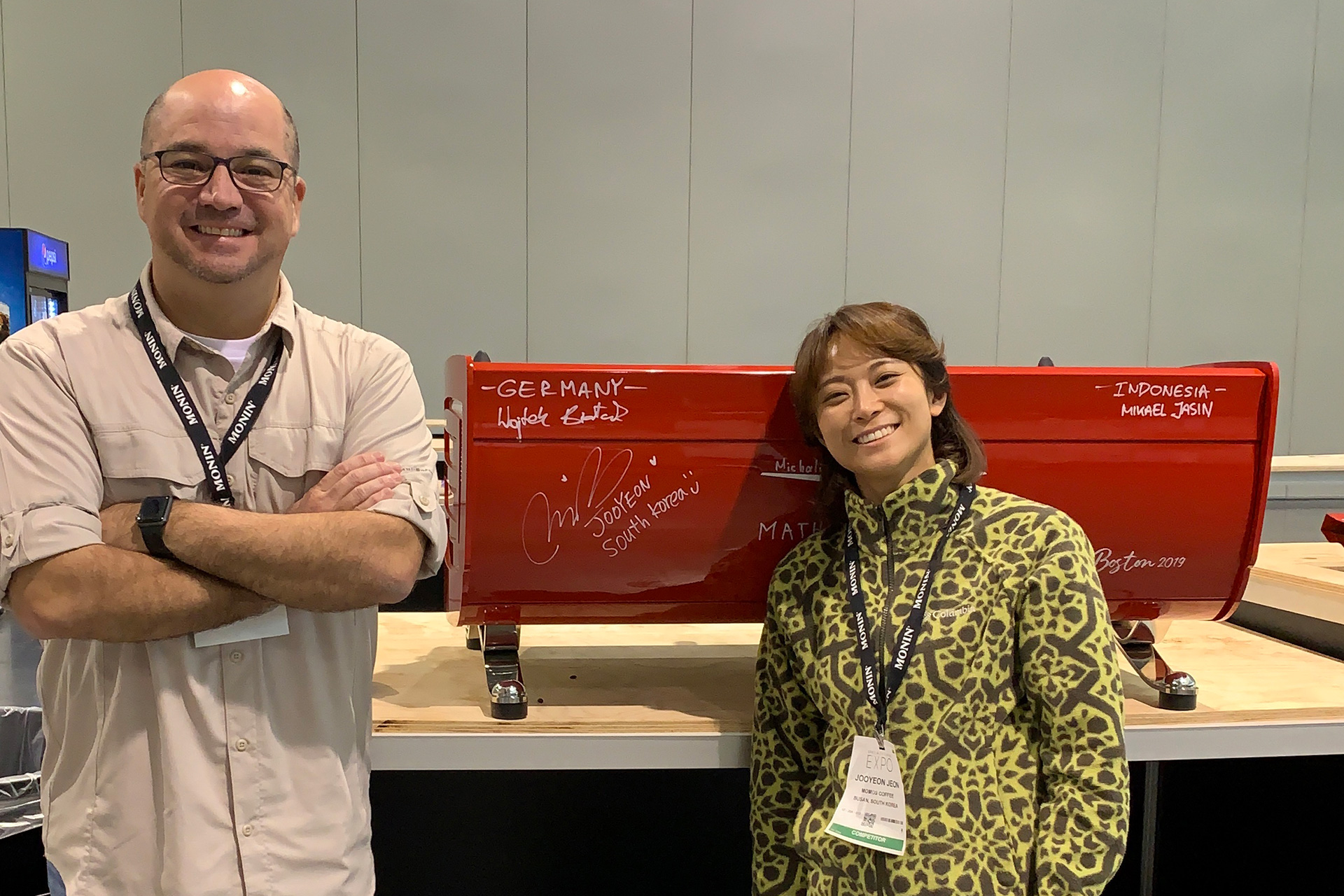
This interview has been lightly edited and condensed for clarity.
For those of us who have never experienced that side of competition, can you give us an introduction into what a Barista Competition coach does?
I can’t speak for other coaches, but I help baristas in all aspects of their preparation for a championship. I structure a tailored training program for the needs of a barista and the available time frame. A complete training program includes: sourcing and coffee selection, presentation concept/theme ideas, signature drink creation, finding the best brewing parameters, developing roast profiles, technical skills, presentation action steps, speech development and refinement, reference material/accessory design, and competition coaching and support during competition week.
Can you give examples of these things in action and how you help coach them?
I help competition baristas improve their technical skills by perfecting their movements and making them work more efficiently, purposely, and consistently. With regards to presentation action steps, I help them structure their actions and decide on the strategy of what should be achieved, when it should be done, and how it should be performed.
I also help competitor write and refine their speech. This is usually a three-step process. The first step is a sort of “pre-speech”, which involves deciding what should be talked about and when it should be said. The second step is writing the speech itself, which involves the how it should be said. And the third step is refining and improving the speech.
How did you get into coaching?
Everything began after attending my first SCAA Coffee Expo in 2006. I was working at an exhibitor booth when I heard a loud crowd cheering across the expo floor. I asked someone what was going on and the guy responded that it was the national barista competition. I had never heard of or seen a barista competition in my life, so I decided to go and check it out. I still remember like it was yesterday, the moment I walked up to the comp area and saw a barista making her presentation… I felt an amazing energy coming from the people on the stands cheering and watching attentively every move and word of the barista. I immediately knew this was what I wanted to do for the rest of my life and right then and there I had a dream: to win the World Barista Championship!
Everyone I told this dream to said I was crazy or that it was near impossible to achieve. This didn’t discourage me… it actually had the opposite effect, it made me more passionate to pursue this dream. So, next year I was a sensory judge at the US Barista Championship, and with that experience I returned home full of answers and highly motivated to keep following my dream. The following year, El Salvador was going to organize its first ever barista championship. So, I immediately began training myself and my wife to compete. My wife won first place and I finished in fourth. This is how I found out I was better at guiding others than performing.
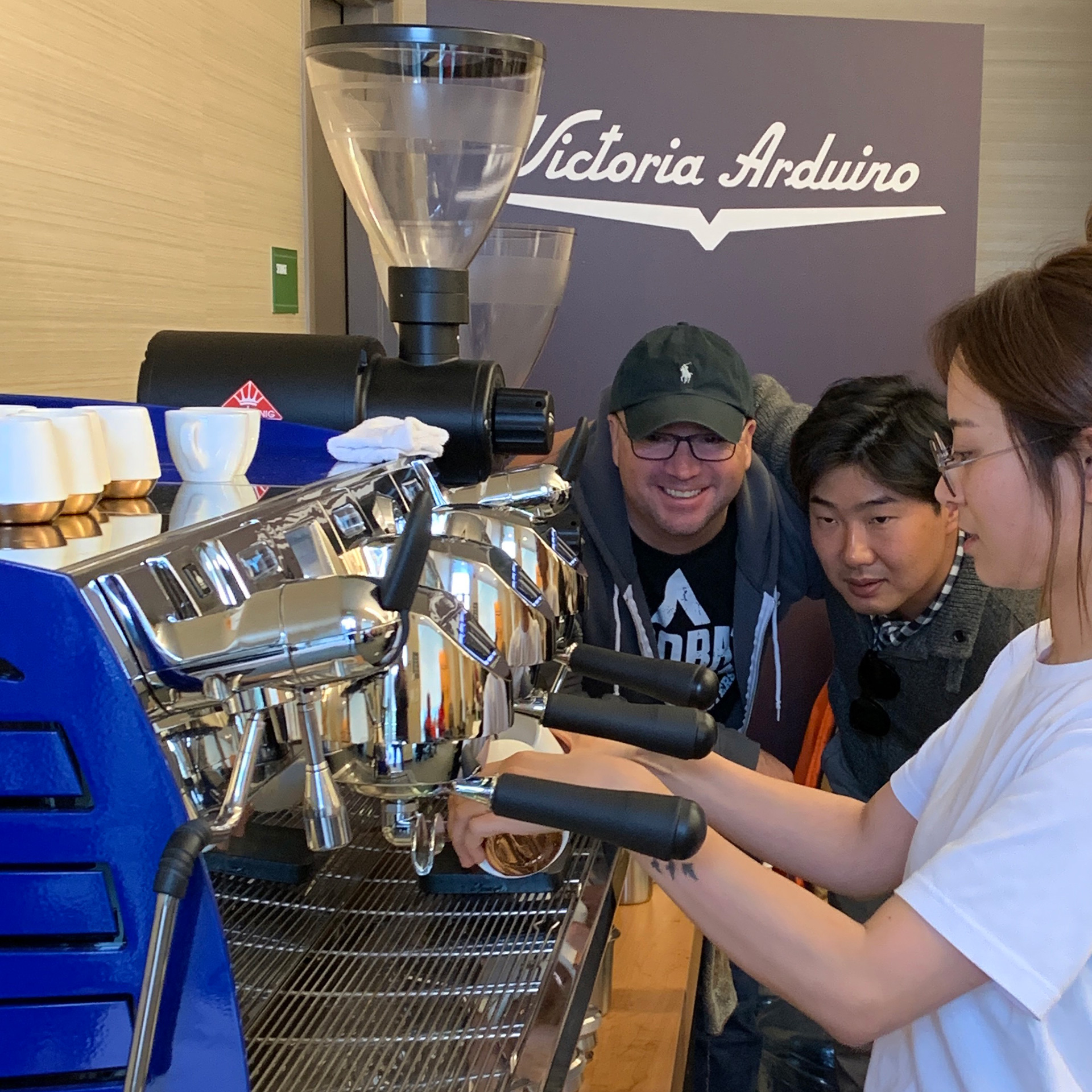
You have coached people from all over the world. How do these relationships come to be? How do you decide who you want to work with? What are you looking for in a potential trainee?
In most cases, the company where the barista works contacts me by email or thru social media (Instagram: @federicobp). We then get in touch and organize a video call.
There are many things I take into consideration before deciding who to work with. I like to work with baristas that compete for a higher purpose and greater good, not personal benefit, fame, or glory. I also like to work with companies that understand that great results are not overnight miracles; they take time and are the result of a long process.
The most important trait I look for in a trainee is a good-hearted person with an academic and scholarly approach to coffee. I also seek and value modesty, passion, drive, intelligence, and a good working ethic.
Is this how your relationship with Jooyeon Jeon began?
I met JooYeon’s boss, Hyunki, in 2013 during his coffee sourcing trip to El Salvador. He then got in touch with me and I agreed to prepare her for the South Korean Barista Championship. A few months later, we began training together. Since the moment I met her, I knew she was someone really special… someone that was made from the stuff champions are made, someone with huge potential and that had everything I look for in a trainee. So, since the very beginning of our journey together I told her I believed she could become a World Barista Champion.
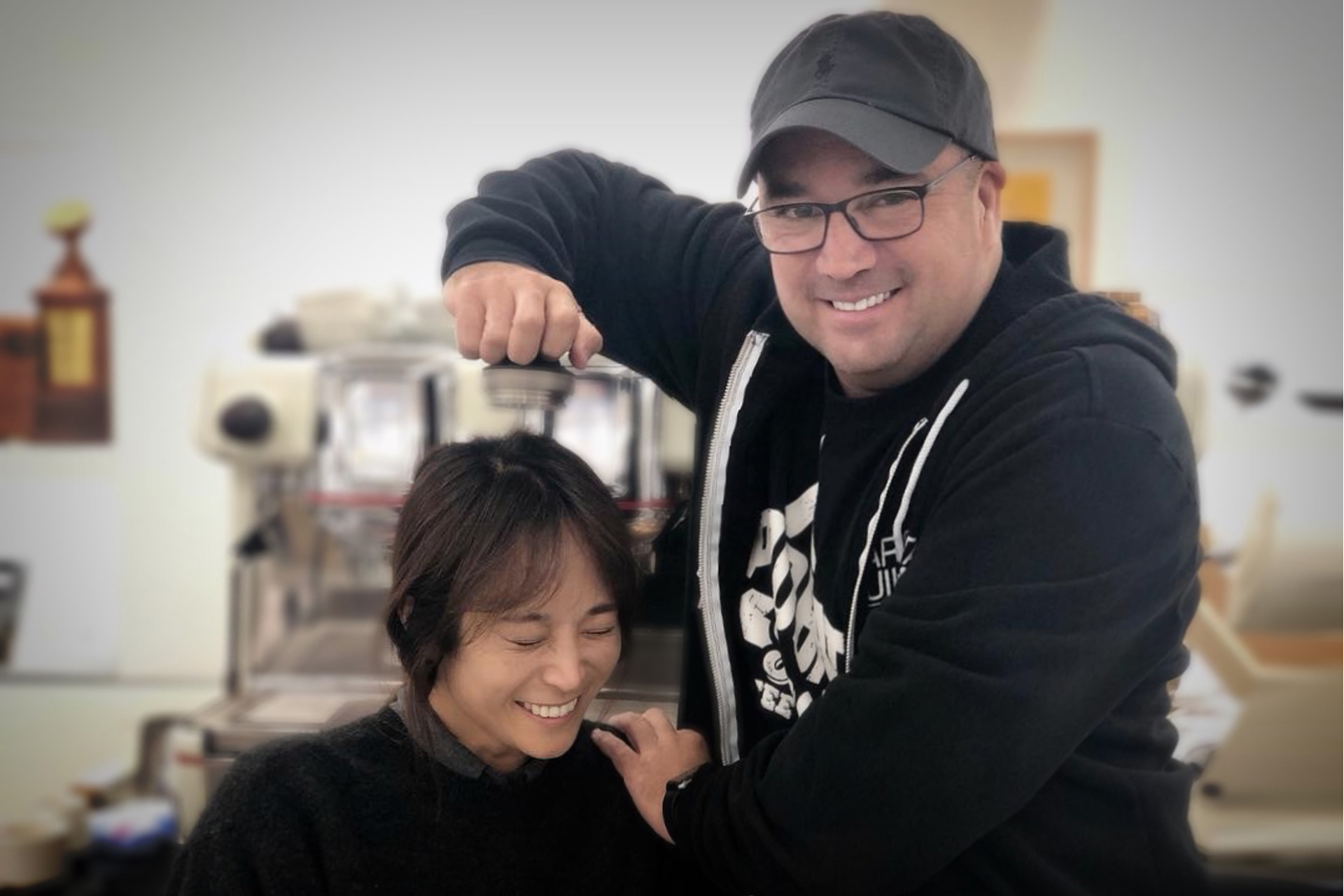
What does coaching international competitors look like? Is it all mostly digital or do you spend time in person as well?
The training is in person. I always travel to do the trainings at the barista’s company facilities, except for the sourcing and coffee selection process, which requires traveling to coffee-producing countries. The duration of the training varies from barista to barista, since each one chooses the length of the training time. A training can last anywhere from one week to several months. More time means better results, which is why I recommend four to five training sessions a week, leaving two to four weeks between each session. Between sessions, I leave the barista with “homework” and follow up their progress digitally until the next training session.
How are routines and themes decided? Do competitors normally have the idea and you help shape it or do you have a more active role in figuring these things out?
It depends. If the barista already has a presentation concept/theme, I always make an assessment to determine if it has potential. If it doesn’t, I give them other ideas and if it does, I help them shape it and develop it. Up to this point, I have never worked with a barista who doesn’t need help in this area of their presentation.
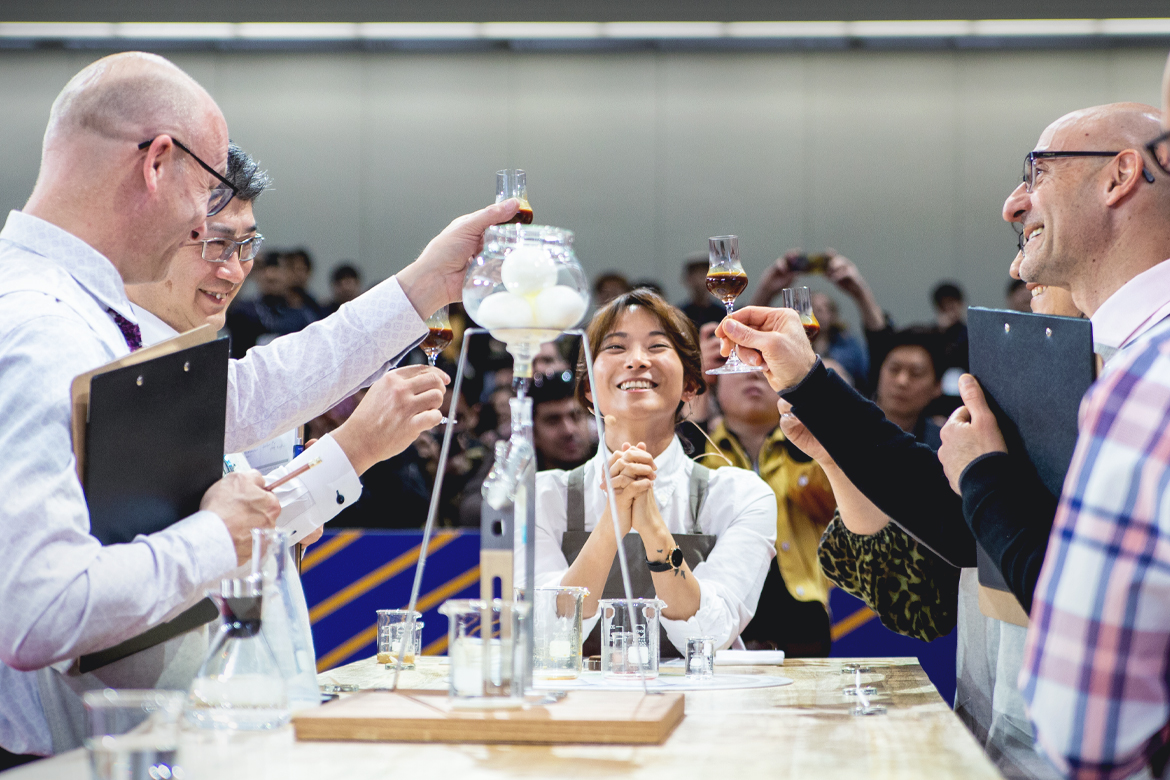
Jooyeon Jeon’s routine is truly the most memorable one I have ever experienced. Walk us through it from her coach’s perspective.
To me, form is just as important as substance. We created a concept with an in-depth scientific content (substance). So, we balanced this by developing a friendly delivery (form) that would lighten the presentation to make it more enjoyable and fun to experience.
We wanted to change the “you” (judges) and “me” (competitor) setting to a “we” (friends) environment. So, right from the beginning, the judges were asked to stand inside JooYeon’s space, instead of outside with a table separating them. This would make them feel intrigued for what would follow next. Judges were then asked to sit on the table where they could be relaxed, feel closer to JooYeon, and enjoy her coffee as friends. This playful and casual setting would surely increase their expectation and create the perfect atmosphere to introduce the concept/theme of the presentation.
While preparing her signature drink espressos, she spoke about the coffee’s origin with a focus on how carbohydrates developed at the production/farm stage and the impact it would have in the cup. During the milk bev preparation, the speech was about how she achieved a higher concentration of carbohydrates by freezing and melting the milk, plus talking about how carbohydrates were affected during the processing and drying stages and their influence in this would have on the cup. Following came the espresso course, so the focus was to talk about how her coffee was roasted and again on its effect on carbohydrates of green coffee and the connection to the taste they would enjoy.
Next up came the sig drink. Judges were invited to move to the edge of the other presentation table (standing up this time) where the sig drink would be prepared, explained, and served. Again, the focus of the drink was carbohydrates to continue reinforcing the connection with concept/theme and its importance. I’m particularly proud of the sig drink we created because it had perfect synergy with her coffee: it reincorporated the carbohydrates her coffee lost during roasting, plus it revealed the polysaccharide sweetness from her coffee’s espresso puck that had never been extracted ever before. We wanted her presentation to finish with a climax, so I thought it would be a great idea to ask judges to raise their glasses and celebrate her coffee and the whole experience with a toast!
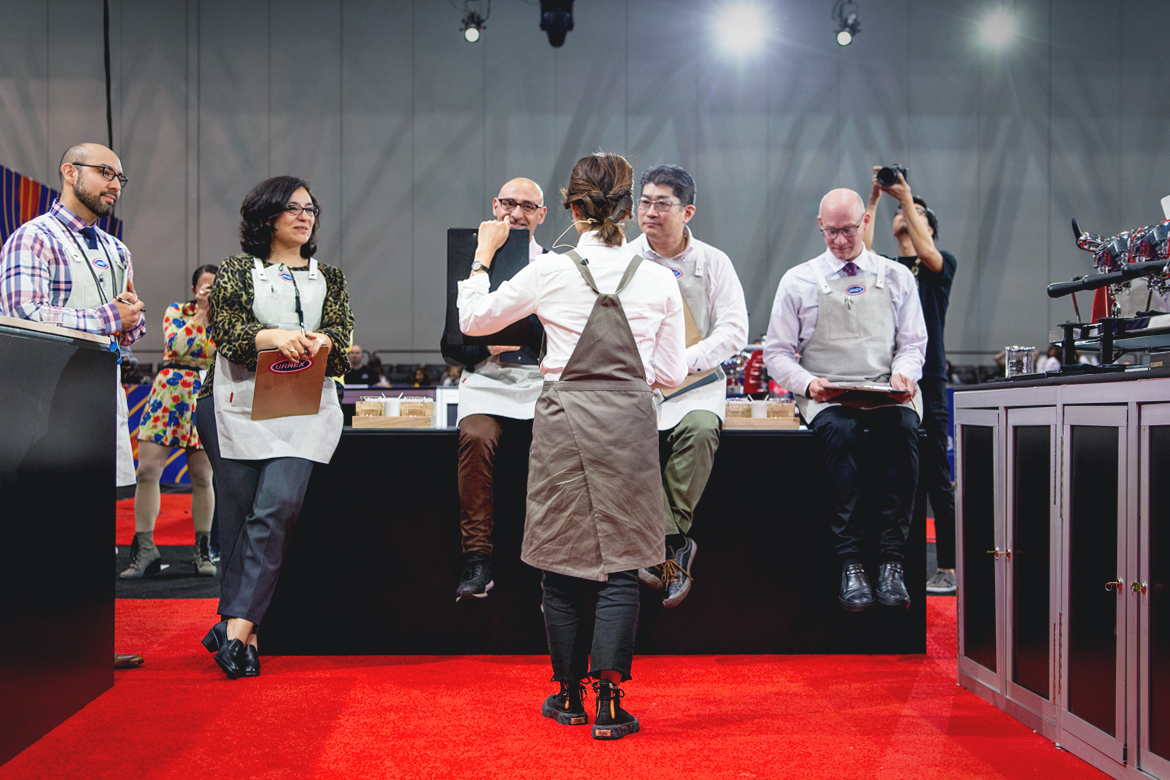
Jooyeon’s routine had the judges constantly in motion: first standing before her during the intro, then sitting on the bar, then moving around another bar. It really took advantage of the customizable stage setups. What was the thinking behind keeping the judges active in that way?
We wanted to keep the judges engaged. Sitting down on the tables was different, casual, and fun, but moving them to a different space would add another layer of engagement and excitement to the presentation.
Of all the routines you helped coach that didn’t win, which one is the most memorable?
I would have to say the presentation of William Hernandez in 2013 that helped us finish in 3rd place. It stands out because it was focused on the aromatics of coffee how it complemented the sensory experience. The espressos were served in a wine glass that had been placed upside down over the espresso and then over the ground coffee used to brew them to capture both the aroma and the fragrance. Judges were led on the tasting of the espressos sip by sip to really enjoy its complexity and structure. The signature drink was created making the aromas a key component of the beverage. I also loved that the presentation was full of wonderful moments and details, like the playful and fun way of explaining the new processing method applied to the coffee… many people still remember the happy-faced sun used to visually represent the sun drying.
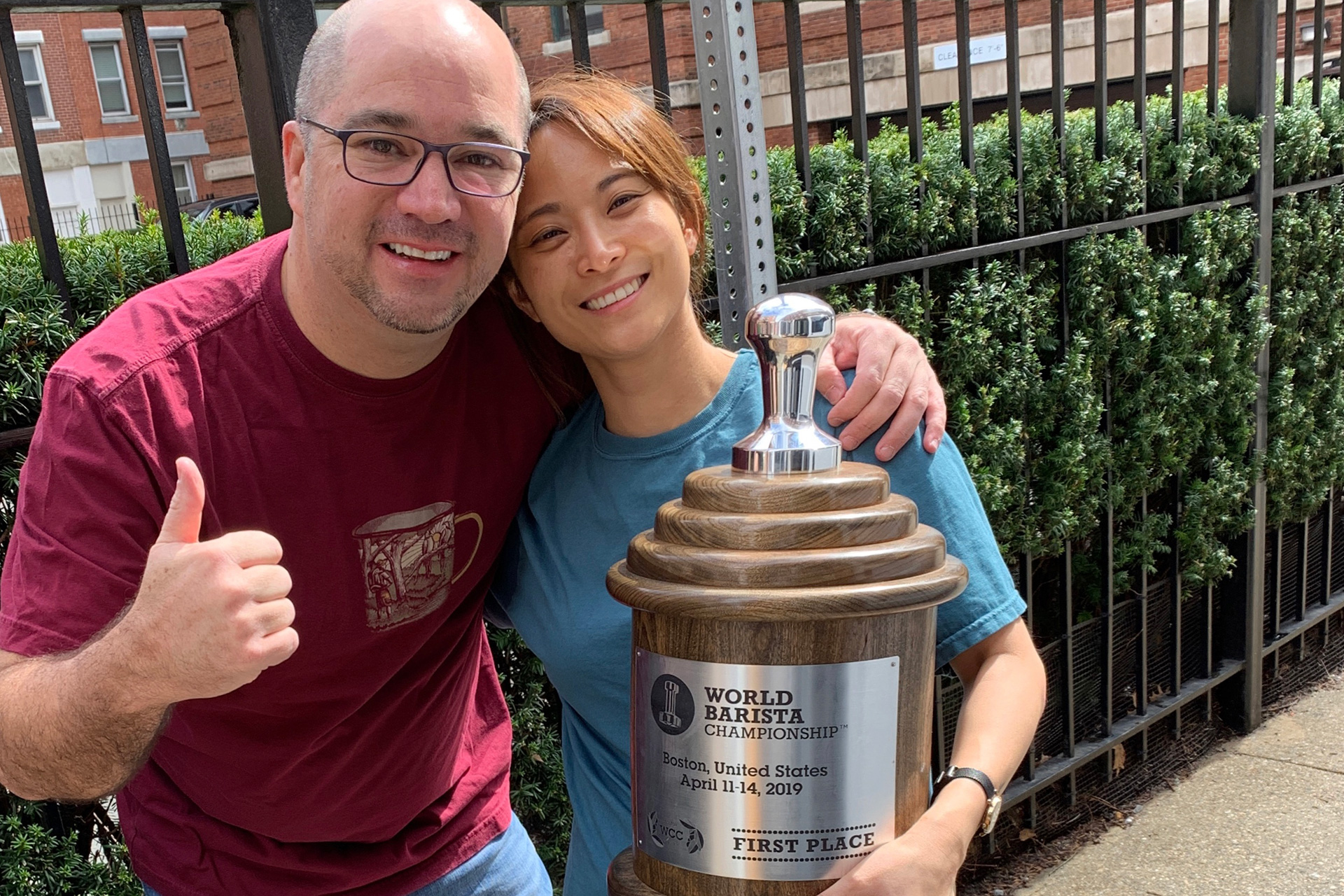
If you can give one piece of advice to someone who has competed in the past but is having trouble making that next step, what would it be?
I would recommend to keep going and keep learning. Most of the time what separates a world champion from the other competitors is that the champion failed more times than the other competitor has even competed.
Thank you Federico!
Zac Cadwalader is the managing editor at Sprudge Media Network and a staff writer based in Dallas. Read more Zac Cadwalader on Sprudge.
All images courtesy of Federico Bolanos unless otherwise noted.




